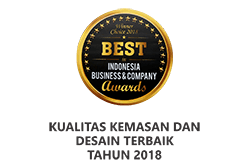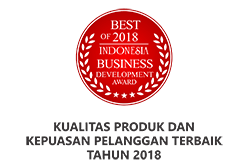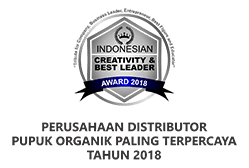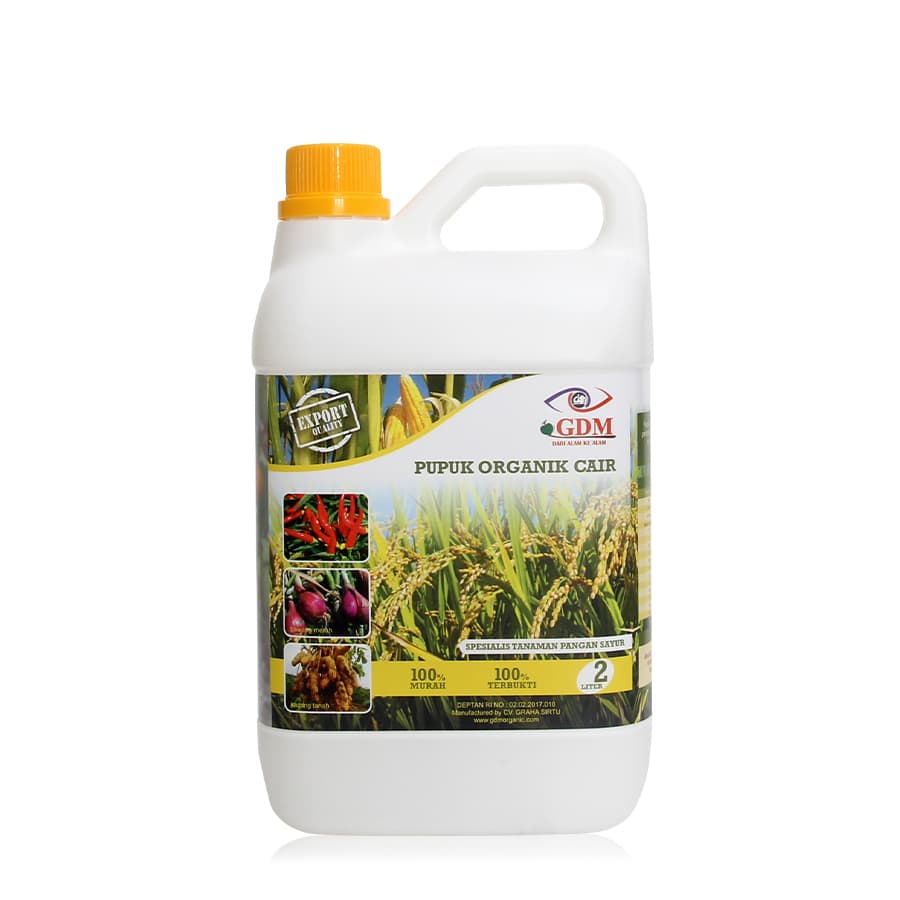
The product is an bio organic fertilizer for agriculture that supports the growth and development of plant roots, increases plant resistance to disease, and improves the production of crops.
Bio organic fertilizer for agriculture specialist can make plant saplings into more, making crops more resistant to disease, as well as attacks can increase production by up to 50%.
GDM Vegetable Plantation suitable for Rice, Corn, Soybean, Peanut, Chilli, Sawi, Spinach, Kale, Carrot, Cabbage, Broccoli, Tomato, Peanut, Potato, Cassava, Red Onion, Garlic, dll.
Result Analysis
Bio Organic Fertilizer For Agriculture
CONTENT | UNIT | VALUE |
|---|---|---|
pH | - | 6.90 |
C. Organic | mg / L | 2.5 |
N. Total | 1mg / L | 1060 |
Organic Ingredients | mg / L | 0.076 |
P | mg / L | 50,001 |
K | mg / L | 1300 |
Na | mg / L | 285 |
Ca | mg / L | 32.6 |
Mg | mg / L | 1.89 |
Fe | mg / L | 2.26 |
Cu | mg / L | 0.25 |
Zn | mg / L | 0.65 |
Mn | mg / L | 0.10 |
B | ppm | 67.20 |
Co | ppm | 2.50 |
Mo | ppm | 20.25 |
Differences of Chemical Fertilizer With Bio-Organic Fertilizer.
ORGANIC FERTILIZER | CHEMICAL FERTILIZER |
|---|---|
Nourishes the soil and the soil nourishes plants | Provides nutrition directly to plants |
Returns the elements carried by the plant | The elements carried by the plant will disappear |
Repairing soil nutrients | Damaging / Removing soil nutrients |
Environment friend | Damaging the environment |
Costs are getting lower | Costs are getting higher and higher |
Packaging Size
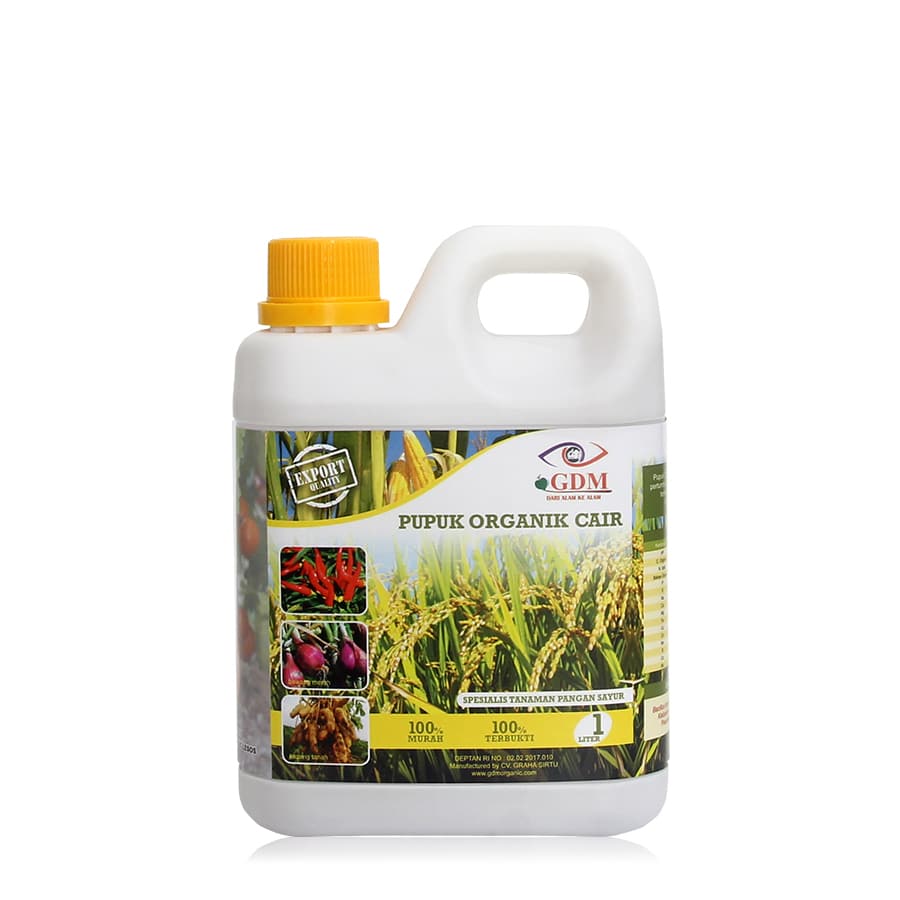
Packaging Size 1 L
Length :13cm
Width : 6cm
Height : 17,5cm

Packaging Size 2 L
Length :14cm
Width : 9cm
Height : 23,5cm
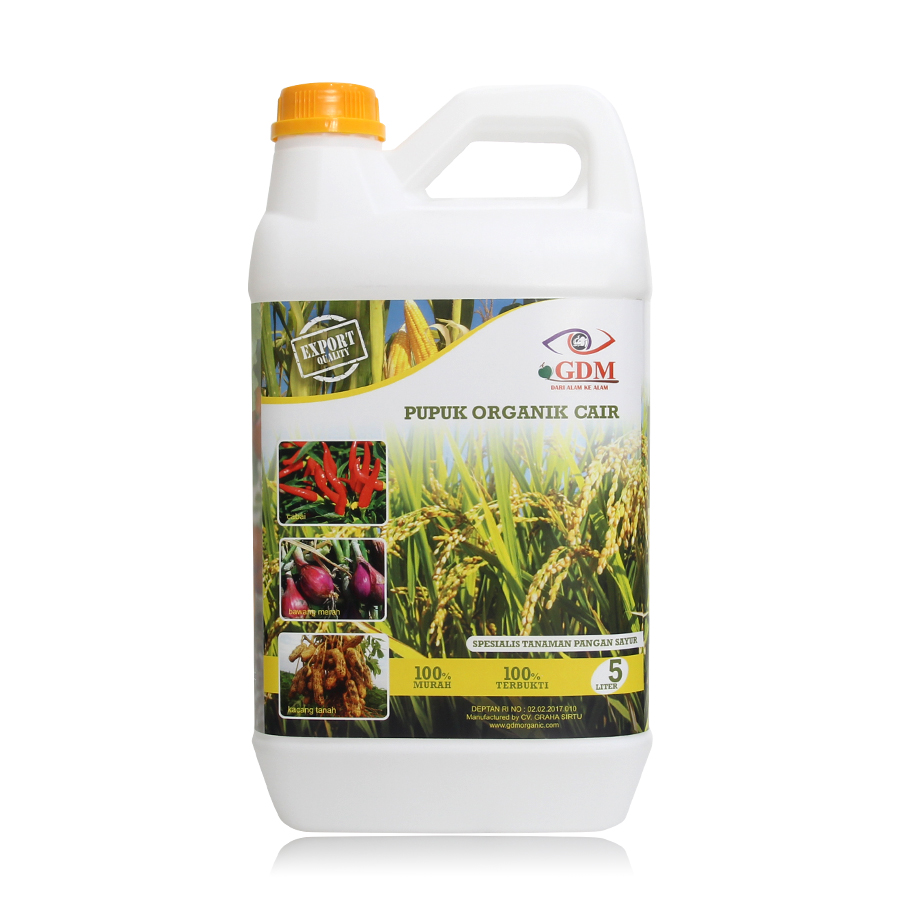
Packaging Size 5 L
Length :17,5cm
Width : 11cm
Height : 33,5cm
Ingredients of GDM Bio Organic Fertilizer:
All ingredients included for the manufacture of GDM are “fresh” ingredients in which the ingredients are obtained every day and processed immediately so that no decay process occurs which allows the entry of disease sources. By using the selective organic ingredients, GDM is able to provide better results and guaranteed.
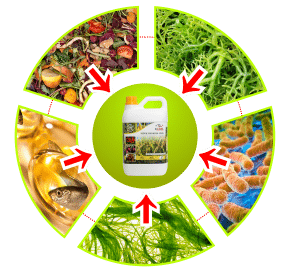
Organic waste in the manufacture of GDM products consists of:
- Animal Organic Waste
- Agricultural Organic Waste
- Organic Fisheries Waste
Organic waste is proven to be able to improve the physical and chemical properties of the soil, help improve soil micro-organisms, have a complete macro and micronutrient content, and be environmentally friendly, absorb and store water longer
Research shows that nutrient-rich seaweed. Seaweed contains minerals such as iron (Fe), iodine (I), aluminum (Al), manganese (Mn), calcium (Ca), nitrogen (N), phosphorus (P), sulfur (S), chlorine (Cl), silicon (Si), rubidium (Rb), strontium (Sr), barium (Ba), titanium (Ti), cobalt (Co), boron (B), copper (Cu), and potassium (K). Seaweed is also rich in protein, flour, sugar, and vitamins A, C, and D.
The high nutrient of seaweed is very beneficial for plants and soil
The content of animal oils is proven as:
- Anti-Fungus
- Anti-bacterial
- Anti Virus
As well as containing high essential minerals, essential minerals are proven to be very good for plant growth.
Algae is a natural resource that has a high level of diversity. The term algae come from the Latin “algae” which means sea algae.
Here are the benefits of Algae:
- As a Bioremediation Agent / Adsorbent for heavy metals.
- Contains a high CO element.
- As a natural antibiotic.
Bacteria are an important element in GDM. Because of its existence can support plant growth and improve the availability of nutrients in the soil. Each bacterium has a different function, but all of them work together and work together in balance.
Here is a list of Bacteria contained in GDM liquid organic fertilizer:
- Bacillus Brevis
- Bacillus Pumillus
- Bacillus mycoides
- Pseudomonas Alcaligenes
- Pseudomonas Mallei
- Klebsiella Oxytaca
- Micrococcus Roseus
Usage and Dosage
Plant |
Dosage/Ha |
Period |
|---|---|---|
Food Crops: Rice, Corn, | 8 Liter GDM | once every 10 days |
Fruitful Vegetables: | 8 Liter GDM | once every 10 days |
Vegetables: Spinach, Lettuce, Cabbage, | 8 Liter GDM | 10 days once |
Tubers: Carrots, Potatoes, Sweet Potatoes, Radishes, Shallots, Ginger, Cassava, etc. | 8 Liter GDM | once every 10 days |
List of Bacteria contained in GDM Bio Organic Fertilizer:
Bacteria are important elements in GDM Product. It can support the plants growth and improved availability of nutrients in the soil. Each bacterium has its own distinct function, but the whole works together and synergizes in balance.
Here are the benefits of Bacillus brevis bacteria:
- Prevents tobacco cancer.
- Support plant growth.
Prevent the emergence of diseases in plants
Here are the benefits of Bacillus pumillus bacteria:
- Increase height and height of plant stems.
- Increase the number of leaves and their area.
- Increases protein content in legume crop yields.
Here are the benefits of Bacillus mycoides:
- Increase plant productivity.
- Reducing the possibility of disease in the leaves.
- Reducing the possibility of root disease.
- Produces antibiotic elements for plants.
- Increase soil fertility.
- Increase the absorption of nutrients in plants.
Following are the benefits of Pseudomonas alcaligenes bacteria:
- Increases absorption of elements N, P, and K.
- Support the development of plant roots.
- Increase plant growth.
The following are the benefits of Pseudomonas mallei bacteria:
- Increasing the P element in the soil.
- Increase crop yields.
- Prevents cutting neck disease in rice.
Following are the benefits of Micrococcus roseus bacteria:
- Loosen the soil.
- Support the growth of plant roots.
- Able to process micro elements, so as not to harm plants.
- Provides immunity against diseases in plants.
Here are the benefits of the Klebsiella oxytoca bacteria:
- It provides phosphorus that can be absorbed by plants.
- Capture Nitrogen so that it can be absorbed by plants.
- Support plant growth.
- Improve the composting process in the soil.
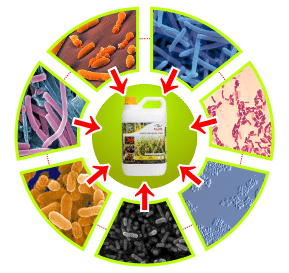
Certificate & Awards
Here is real evidence
The Advantages Of Bio Organic Fertilizer GDM
For Agriculture
Real Evidence GDM on Plants Rice:
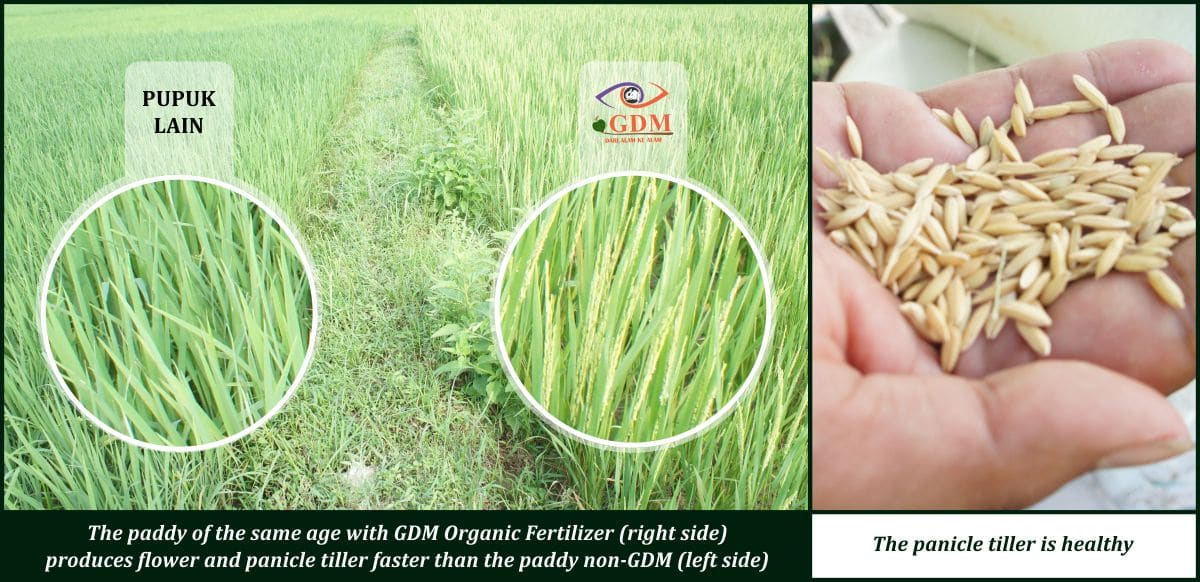
- Roots are longer and bushy.
- No problem with migration of plantation area
- Produces more rice seedlings.
- More resistant to cervical disease (Pyricularia grisea).
- More resistant to crackle disease (Xanthomonas sp).
- Can save chemical fertilizer up to 50%.
- Faster outflow of flowers & panicles.
- The paddy is fully loaded.
- Rice Production increased by 50%.
Real Evidence GDM on Plants Corn:
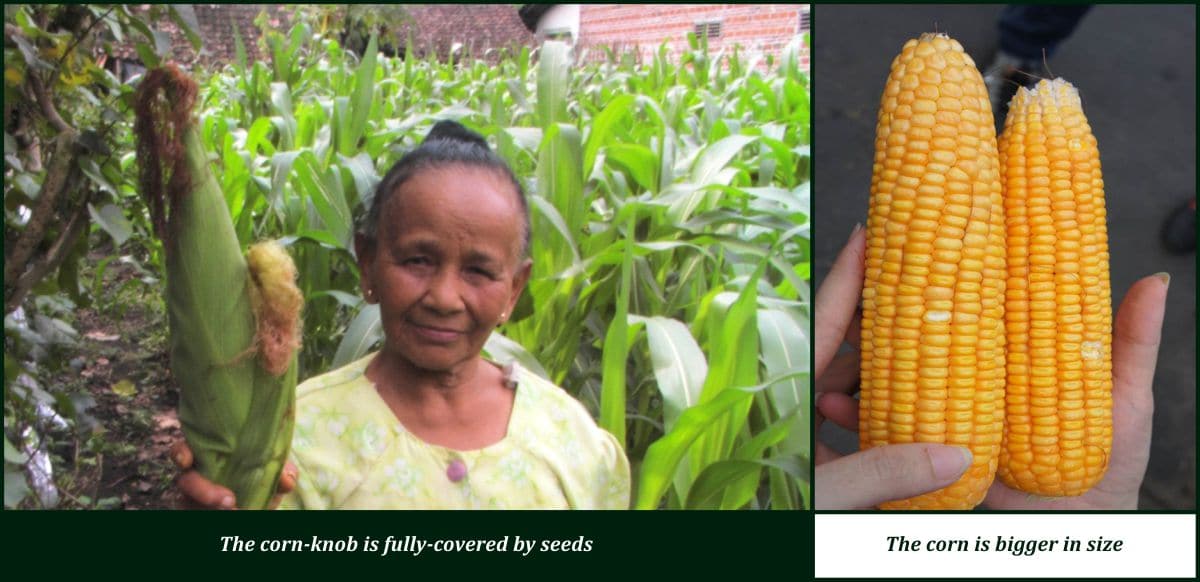
- Plant growth with similar height.
- The corn stalk is larger.
- Speed up the flow of flowers.
- Corn cob is fully loaded.
- More resistant to broilers (white leaf).
Real Evidence GDM on Plants Eggplants:
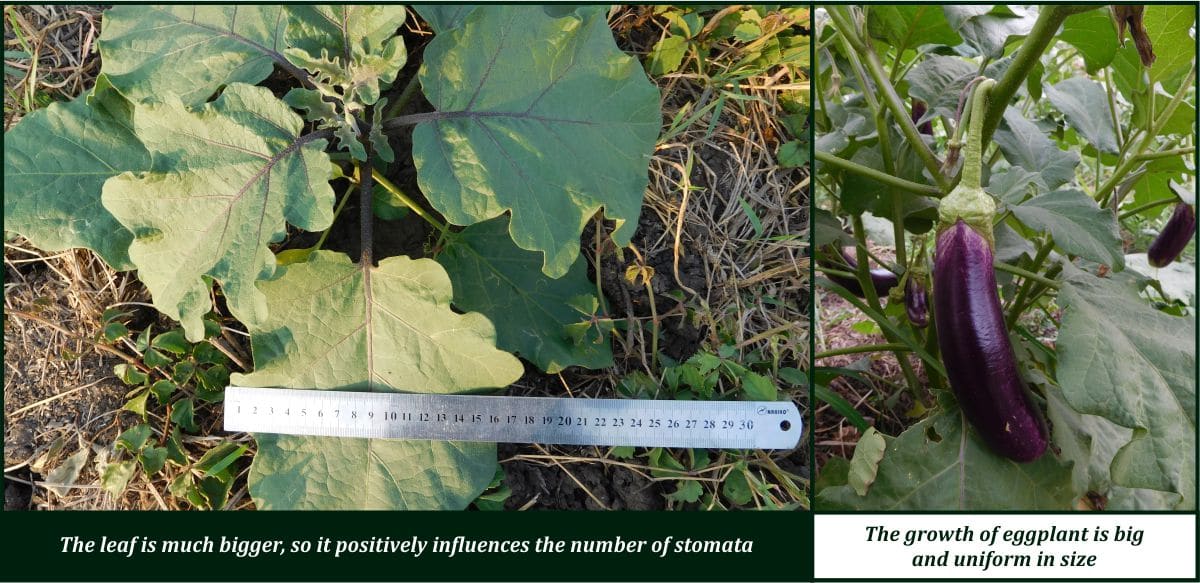
- Plant growth with similar height.
- More resistant to bacterial wilt disease (Pseudomonas solanacearum) and fusarium wilt.
- Leaves remain wider.
- Speed up the flow of flowers.
- Fruit color is more shiny.
- The yield is increasing.
Real Evidence GDM on Green Bean Plants:
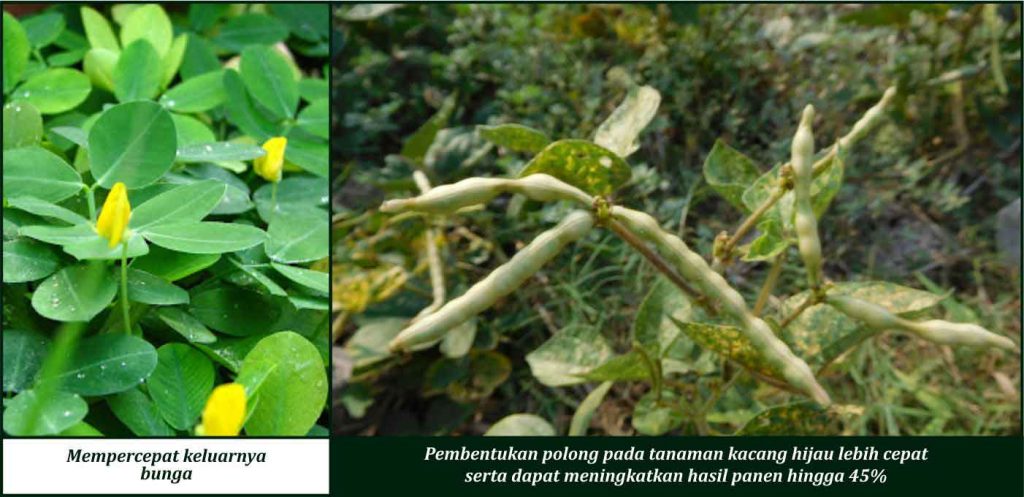
- More uniform plant growth.
- Speed up the appearance of the flowers.
- Formation of legumes more quickly.
- Pods filled perfectly.
- Boost yields by up to 45%.
Real Evidence GDM on Plant Mustard Greens:
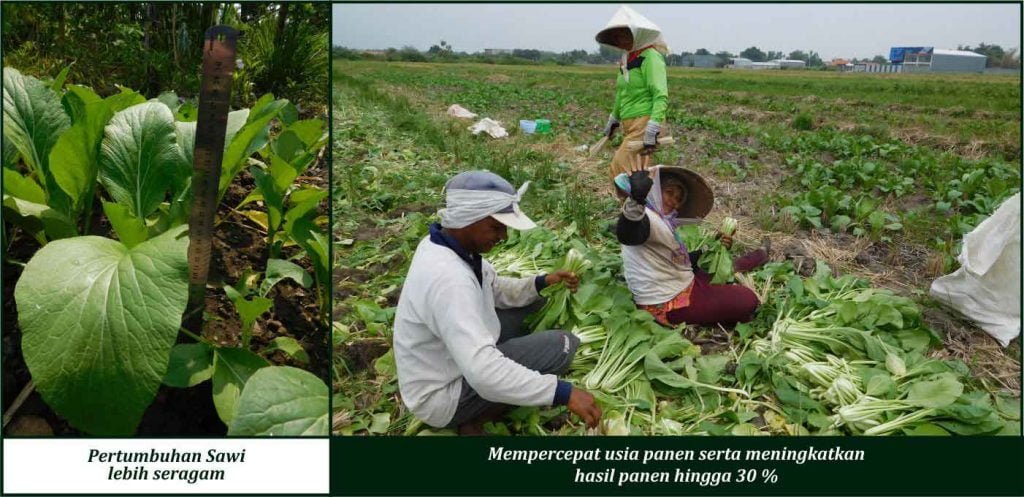
- More uniform plant growth.
- The leaves are wider.
- Speed up the harvesting age.
- Can save up to 50% chemical fertilizer.
- Boost yields by up to 30%.
Real Evidence GDM on Plants Cabbage:
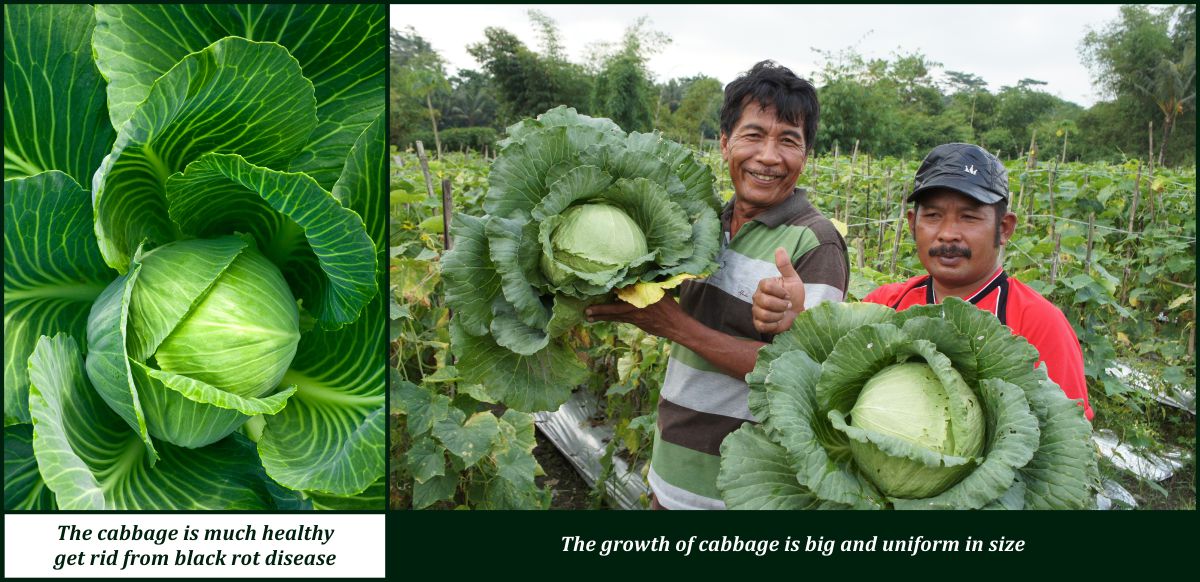
- Faster Plant growth.
- Faster crop formation.
- Crop size is larger, solid and in similar size.
- Can prevent the attack of root disease.
- The plants stay fresh and is not easy to rot.
Real Evidence GDM on Plants Red Onion:
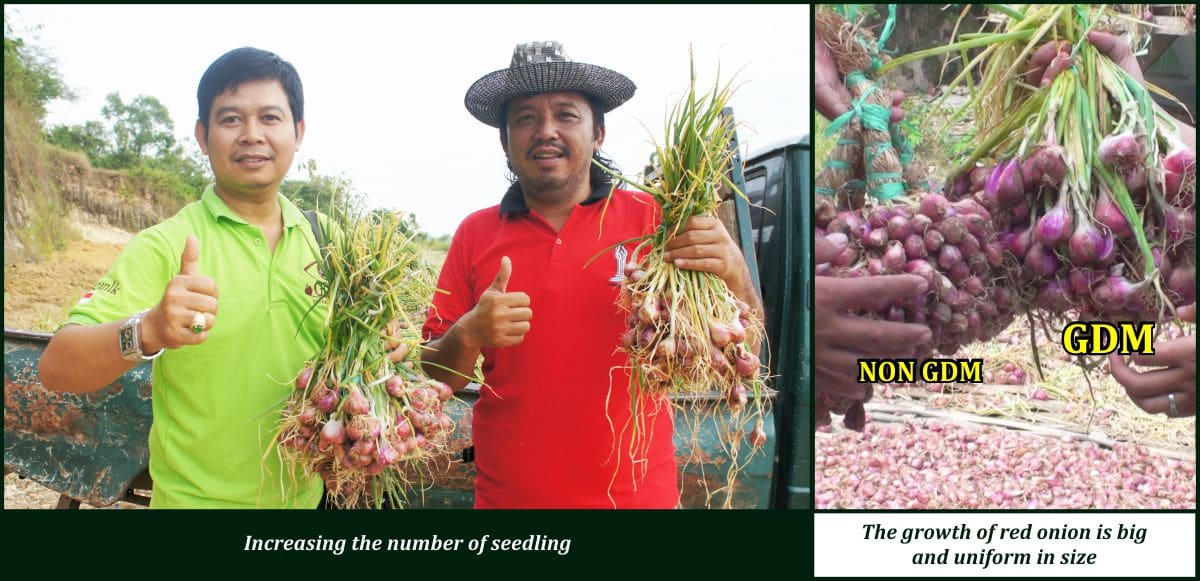
- Accelerate the harvest periode.
- Increase number of the tillers.
- Leaves and stems remain thicker so that it becomes more waterproof.
- Tubers are more weighty and do not rot quickly.



